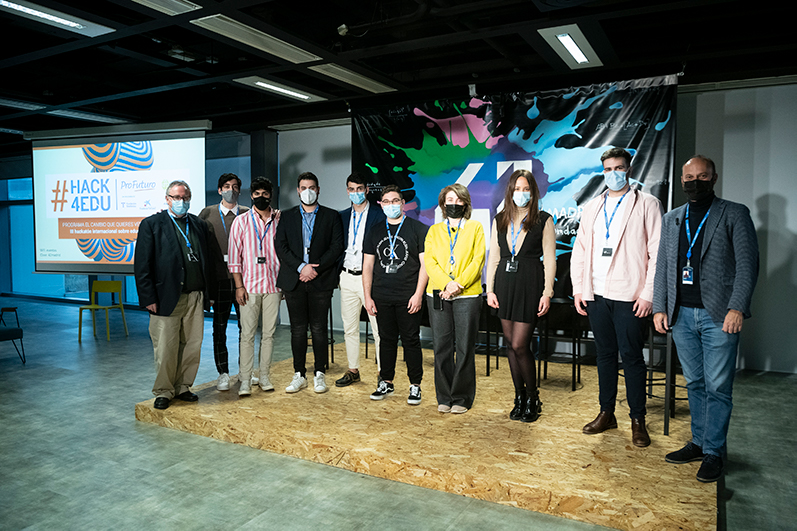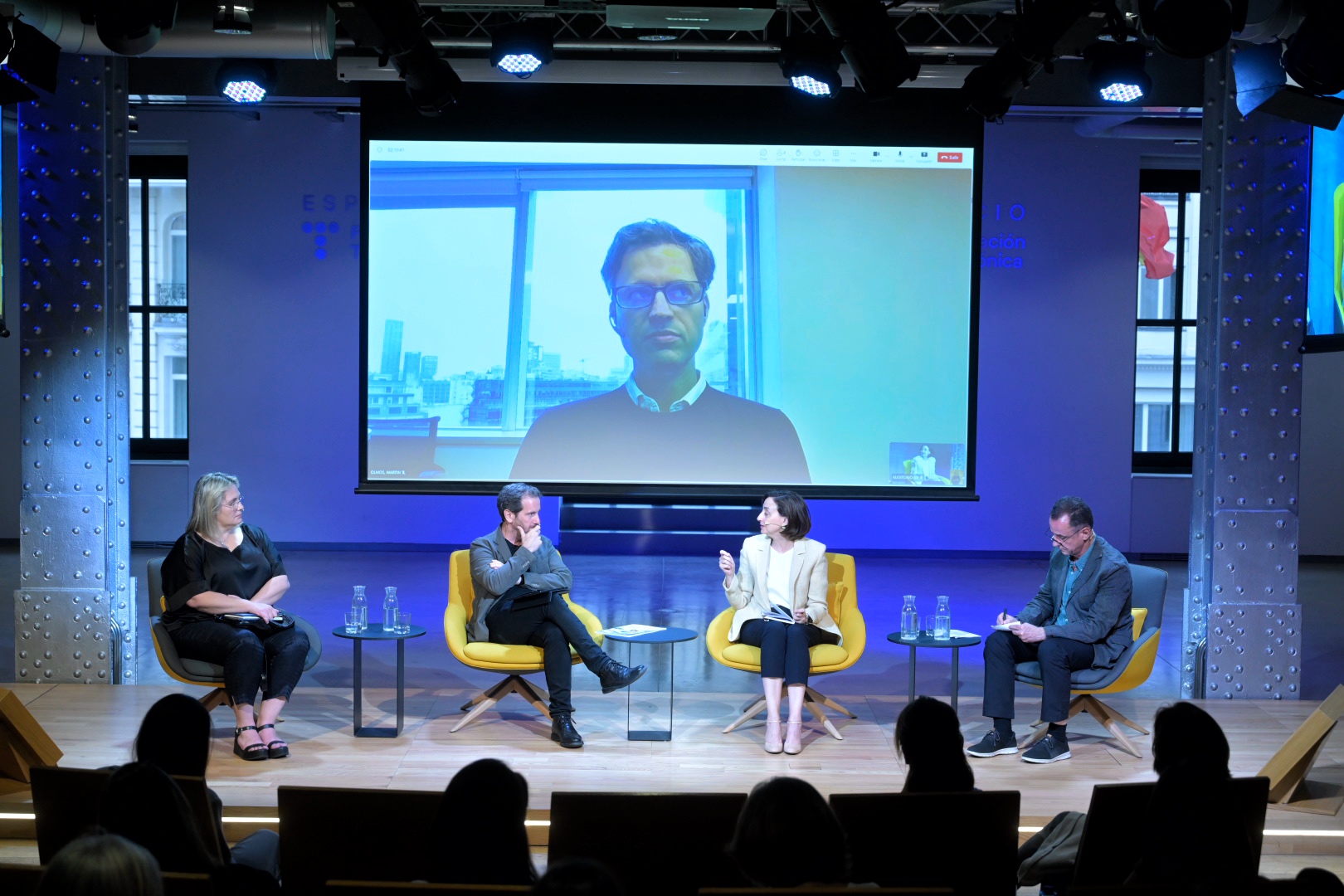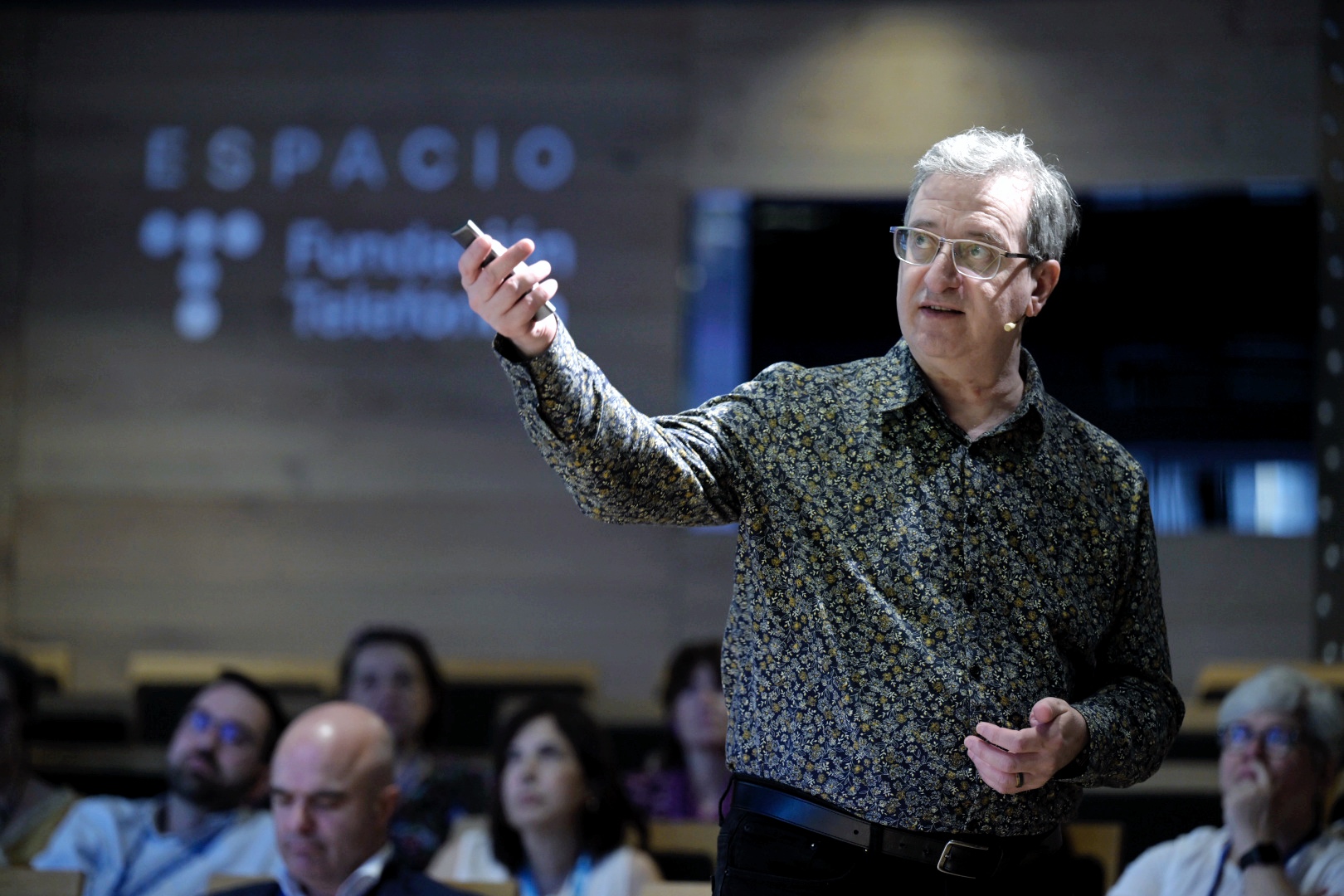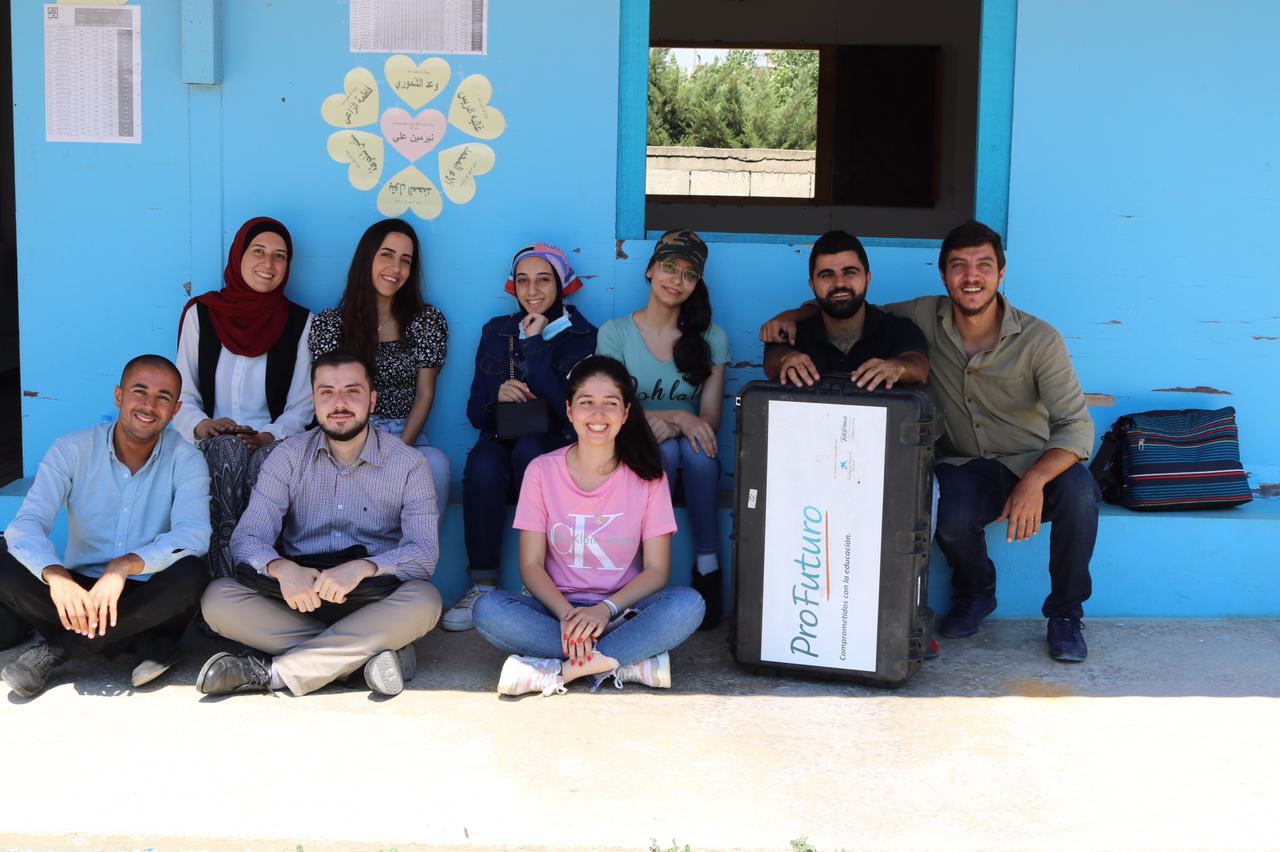The dates have been set for the forthcoming #hack4edu, the first hybrid international hackathon with a social purpose devoted to digital education: it will be held between 15 and 18 November. The details of the third hackathon were announced on Thursday at an event held at the headquarters of 42 Madrid, Telefónica Foundation’s programming campus, which will also be an educational centre this year with its five campuses in Madrid, Barcelona, Málaga, Alicante and Urduliz.
Behind the initiative, which will take place for the third year in a row, there lies a triple social, academic and entrepreneurial partnership. #hack4edu, promoted by ProFuturo, the Pontifical University of Salamanca (UPSA) and the Telefónica Chair Network, will be attended by different Spanish and Latin American universities, with this year’s incorporation of 42 Madrid as a partner.
#hack4edu was created in 2020, just a few months after the pandemic confirmed the importance of technology applied to education. “We realised that digital education was more necessary than ever before, but also that we need to join forces to address social problems. This hackathon demonstrates the potential of collaboration, a kind of collaboration that’s inter-generational, multi-disciplinary and devoted to those who have the greatest difficulty in accessing quality education”, explains Magdalena Brier, ProFuturo’s managing director.
What sets this hackathon apart is its focus and impact on a real case study that ProFuturo faces in 40 countries in Latin America, the Caribbean, Africa and Asia, namely how to break down the barriers that separate children living in vulnerable areas from quality education. This is how Manuel José Ruiz García, the coordinator of #hack4edu and a data analytics manager at ProFuturo, puts it: “The projects that are developed, the exchanges of ideas between the students that occur, the coordinators of each team and the jury provide us with oxygen to find answers to the challenges that we see every day during our interventions. The hackers are able to resolve our own problems”.
Salamanca, the epicentre of a hackathon that goes beyond borders
#hack4edu was created in a 100% digital format, but it will be held in a hybrid version from 2021 onwards. The third hackathon will continue with the same dynamic, with the venue of the Pontifical University of Salamanca (UPSA) as its nerve centre, to which the other universities and educational centres that make up the network of partners from different parts of the world will be connected. The event will take place between 15 and 18 November, although the hackathon itself will last for 48 hours on the16 and 17 November.
The registration period for universities and educational centres will open on 7 March and on 1 May for hackers. In addition, from 1 April onwards, anyone interested can submit their challenge proposal related to digital education, which must be framed within one of these six strategic lines: learning analytics, the localisation of educational platforms and contents, plug-ins in Moodle learning management tools, the integration of record databases (teachers, students, etc.) in different countries, solutions for data collection in locations with low connectivity (e.g. in rural areas) and artificial intelligence applied to education.
280 hackers, 14 universities and 8 countries at the first two hackathons
The first two #hack4edu events brought together 8 countries, 14 universities, 280 hackers, 78 challenges and 16 winning projects. At the first, held in 2020, the winning projects focused on gamification, knowledge sharing and platforms for education during the pandemic. At the second, held in 2021, inclusion was the common denominator, with projects adapted to vulnerable environments.
The participants can win 7 prizes divided into two categories: Innovative and Senior. The Telefónica ProFuturo-UPSA Chair will award three prizes worth €1,000, €700 and €500 to the three best projects in the Innovative category and two prizes worth €1,000 to the two best projects in the Senior category. The Pontifical University of Salamanca will also award two free enrolments on the UPSA’s Big Data Expert degree course (one in each category).
You’ll be able to keep track of all the news on #hack4edu on the website.






